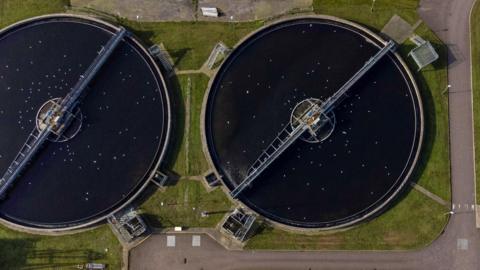On the edge of Buckingham in southern England, the quiet and leafy village of Maids Moreton, dotted with thatched cottages, is at the heart of a dilemma.
There is a plan - already granted permission - to add 153 new homes to the existing community of 350 houses, a medieval church and a pub.
But the local sewage works has been over capacity for years, and there is no sign of it being upgraded soon.
A choice is looming over what to do if the planned new homes are built.
Leave them standing empty, waiting for upgrades to the wastewater treatment system before they are connected?
Or connect them anyway and let people move in - contributing towards Buckinghamshire Council's target for new homes, but increasing the sewage pollution of the nearby river, the Great Ouse?
"You wouldn't dream of building a house that you couldn't connect to electricity, or that was never going to connect to a road. But for some reason we're building houses that have nowhere to treat the sewage," says Kate Pryke, one of the local residents campaigning to prevent the development being built.
Maids Moreton's dilemma is an increasingly common one across England - as ageing sewage works, water industry under-investment and chronic pollution in many areas appear to threaten the government's ambitious plans to build 1.5 million homes this parliament.
About 30 miles away in Oxford, concerns over sewage capacity led to the Environment Agency objecting to all new development, placing up to 18,000 new homes in limbo. It led a group of developers, including some of Oxford University's colleges, to describe the city as "uninvestable".
Overdue upgrades to Oxford Sewage Treatment Works have now been agreed allowing new homes to be built and occupied from 2027.
"We think the problem is rife across England and Wales," says Justin Neal, solicitor at Wildfish, an environmental charity that campaigns against river pollution.
The charity has been granted permission for a judicial review at the High Court, challenging Buckinghamshire Council's decision to grant planning permission for the Maids Moreton development.
It says the case goes to the heart of the gap between plans for new housing and the capacity of the existing sewage infrastructure.
